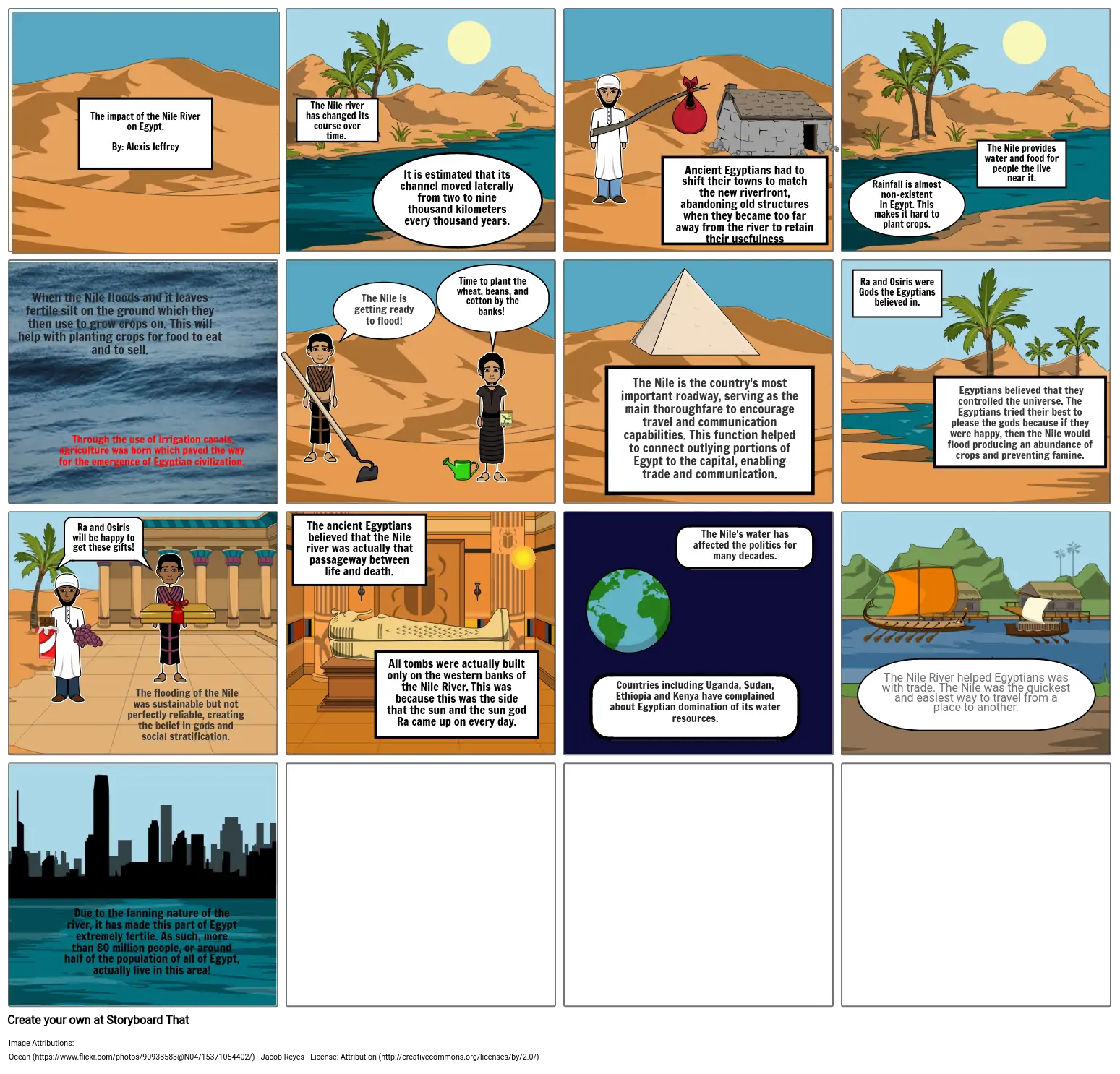The impact of the Nile River on Egypt

Texte du Storyboard
- The impact of the Nile River on Egypt. By: Alexis Jeffrey
- The Nile river has changed its course over time.
- It is estimated that its channel moved laterally from two to nine thousand kilometers every thousand years.
- Ancient Egyptians had to shift their towns to match the new riverfront, abandoning old structures when they became too far away from the river to retain their usefulness
- Rainfall is almost non-existent in Egypt. This makes it hard to plant crops.
- The Nile provides water and food for people the live near it.
- When the Nile floods and it leaves fertile silt on the ground which they then use to grow crops on. This will help with planting crops for food to eat and to sell.
- Through the use of irrigation canals, agriculture was born which paved the way for the emergence of Egyptian civilization.
- The Nile is getting ready to flood!
- Time to plant the wheat, beans, and cotton by the banks!
- The Nile is the country's most important roadway, serving as the main thoroughfare to encourage travel and communication capabilities. This function helped to connect outlying portions of Egypt to the capital, enabling trade and communication.
- Ra and Osiris were Gods the Egyptians believed in.
- Egyptians believed that they controlled the universe. The Egyptians tried their best to please the gods because if they were happy, then the Nile would flood producing an abundance of crops and preventing famine.
- Ra and Osiris will be happy to get these gifts!
- The flooding of the Nile was sustainable but not perfectly reliable, creating the belief in gods and social stratification.
- The ancient Egyptians believed that the Nile river was actually that passageway between life and death.
- All tombs were actually built only on the western banks of the Nile River. This was because this was the side that the sun and the sun god Ra came up on every day.
- Countries including Uganda, Sudan, Ethiopia and Kenya have complained about Egyptian domination of its water resources.
- The Nile's water has affected the politics for many decades.
- The Nile River helped Egyptians was with trade. The Nile was the quickest and easiest way to travel from a place to another.
- Due to the fanning nature of the river, it has made this part of Egypt extremely fertile. As such, more than 80 million people, or around half of the population of all of Egypt, actually live in this area!
Attributions D'image
- Ocean - Jacob Reyes - (Licence Attribution )
Plus de 30 millions de storyboards créés

